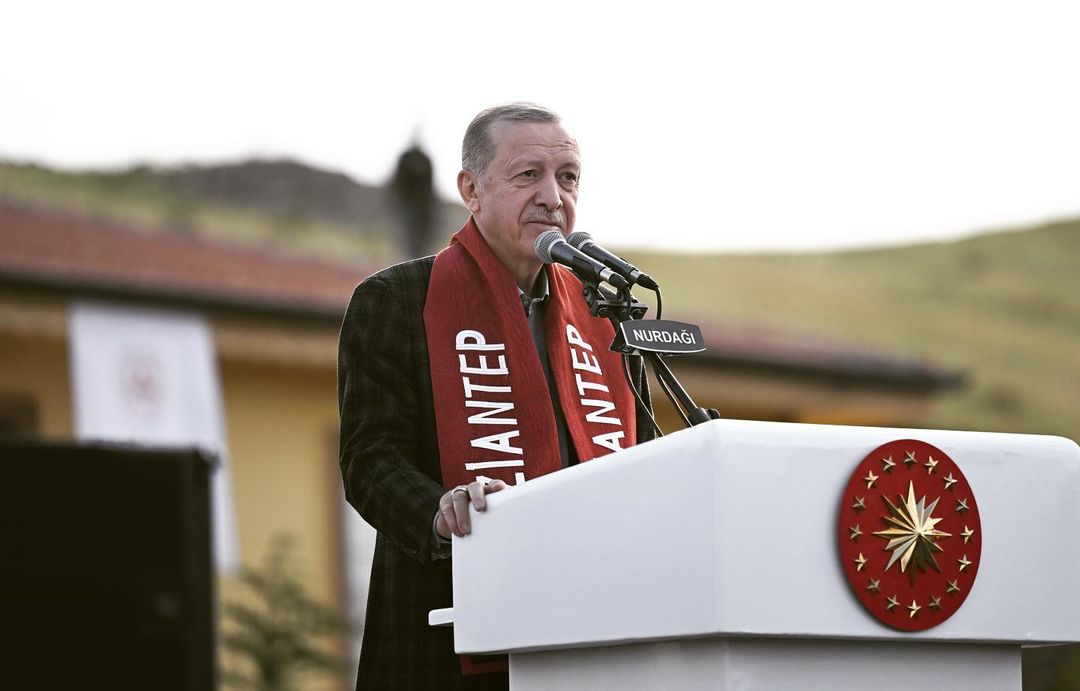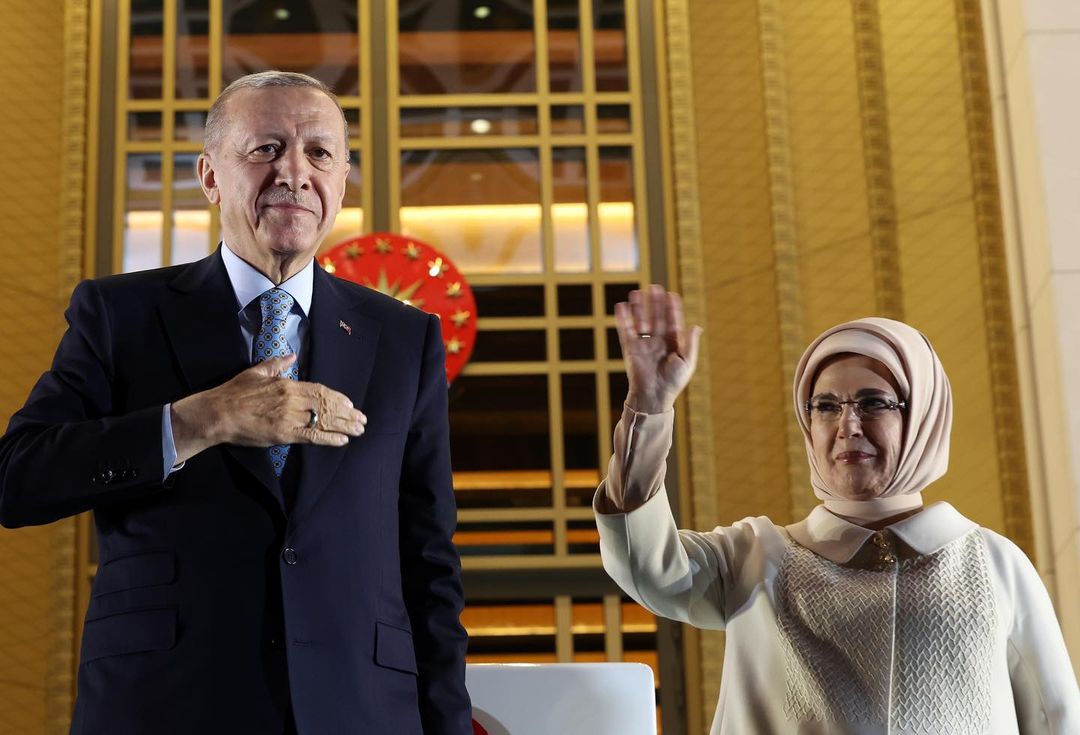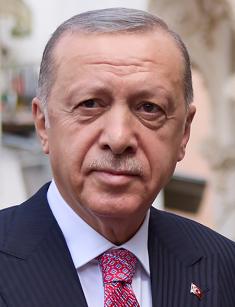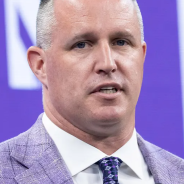- Horoscope: Pisces
- Net worth: $500 000 000
- Nationality: Turkish
- Fathers name: Ahmet Erdoğan
- Mothers name: Tenzile Erdoğan
- Education: Marmara University; Marmara University
- Weight: 81.0
- Hair color: Salt and pepper
- Eye color: Black
Recep Tayyip Erdoğan: biography
Recep Tayyip Erdoğan is a Turkish politician who has been a dominant figure in Turkish politics since the early 2000s. Erdoğan served as the Prime Minister of Turkey from 2003 to 2014 and has been the President of Turkey since 2014.
Childhood and youth
Recep Tayyip Erdoğan was born on February 26, 1954, in the Kasımpaşa neighborhood of Istanbul, Turkey. He grew up in a conservative Muslim family. His father, Ahmet Erdoğan, worked as a coast guard, while his mother, Tenzile Erdoğan, was a homemaker. Erdoğan was the second of five children.
During his childhood, Erdoğan attended religious Imam Hatip schools, which emphasized both secular education and Islamic studies. These schools played a significant role in shaping his religious and political worldview. Erdoğan showed early leadership skills and became involved in student organizations.
In his youth, Erdoğan developed a passion for soccer and played as a semi-professional player. He even had aspirations of becoming a professional footballer, but he later shifted his focus to politics.
Erdoğan entered politics during his university years at Marmara University, where he studied Business Administration. He became an active member of various student political organizations, including the National Turkish Student Union. Erdoğan's involvement in politics grew, and he eventually joined the Islamist National Salvation Party.
After graduating from university, Erdoğan worked in the private sector for several years before becoming actively engaged in politics. His rise within the ranks of the political arena began when he was elected as the mayor of Istanbul in 1994, marking the start of his successful political career.
Throughout his childhood and youth, Erdoğan's experiences and religious upbringing played a significant role in shaping his political ideology and leadership style. His conservative background and grassroots political activism have been defining aspects of his life and career.
Politic career
Recep Tayyip Erdoğan's political career has been marked by significant achievements and controversies. He rose to prominence in Turkish politics as a member of the Islamist movement and became a prominent figure within the Justice and Development Party (AKP), which he co-founded.
Erdoğan's political career began in the 1990s when he joined the Islamist Welfare Party (RP). In 1994, he was elected as the mayor of Istanbul, a position he held until 1998. As mayor, Erdoğan implemented various infrastructure projects and gained a reputation for his effective governance and grassroots support.
However, Erdoğan's political career faced a setback in 1998 when he was convicted and briefly imprisoned for reciting a poem that was deemed to incite religious intolerance. This conviction temporarily banned him from politics and led to his expulsion from the RP.
Undeterred by his conviction, Erdoğan played a key role in the establishment of the AKP in 2001. The party sought to bring together a broad coalition of conservative and moderate Muslims, as well as liberals and nationalists. In the 2002 general elections, the AKP won a landslide victory, and Erdoğan became the Prime Minister of Turkey.
During his tenure as Prime Minister from 2003 to 2014, Erdoğan implemented a series of economic and political reforms that aimed to modernize Turkey and improve its global standing. Under his leadership, the country experienced significant economic growth, and he introduced policies to expand social welfare programs, infrastructure development, and foreign direct investment.

However, Erdoğan's tenure as Prime Minister was not without controversy. His government faced accusations of authoritarian tendencies, curbing press freedom, and suppressing political opposition. There were also concerns raised about his handling of protests and his increasingly polarizing rhetoric.
In 2014, Erdoğan transitioned from the role of Prime Minister to the presidency after winning the country's first direct presidential election. As President, he continued to exert significant influence over Turkish politics, leading to criticisms of an increasingly centralized power structure.
During his presidency, Erdoğan has implemented various policies and initiatives. He has focused on strengthening Turkey's economy, promoting infrastructure development, and expanding social welfare programs. His government has prioritized large-scale infrastructure projects such as airports, bridges, and highways, aiming to boost economic growth and improve connectivity within the country.
Erdoğan's presidency has also seen a more assertive foreign policy stance. Turkey has been involved in the Syrian civil war, supporting certain opposition groups and conducting military operations against Kurdish militants in northern Syria. These interventions have drawn both domestic and international criticism, with concerns raised about human rights abuses and the impact on regional stability.
However, Erdoğan's presidency has faced significant criticism for its increasingly authoritarian tendencies. Under his leadership, there have been widespread crackdowns on perceived opponents, including journalists, academics, and political dissidents. The government's restrictions on press freedom and freedom of expression have drawn international condemnation.
In 2016, Turkey experienced a failed coup attempt, which further intensified Erdoğan's response against alleged coup plotters and opponents. Thousands of individuals, including military personnel, judges, and civil servants, were arrested or dismissed from their positions. The government's response to the coup attempt raised concerns about the erosion of democratic institutions and the rule of law.
Erdoğan has also faced strained relations with Western allies during his presidency. Disagreements over issues such as human rights, freedom of the press, and Turkey's purchase of Russian-made S-400 missile defense systems have contributed to tensions with countries like the United States and some European nations.
The presidential election of 2023 has been marked by controversy surrounding Recep Tayyip Erdoğan's candidacy. Despite launching his campaign in June 2022, there is a dispute as to whether a third presidential term would violate the constitution, with the opposition raising objections.
In the first round of the 2023 Presidential Election, Erdoğan did not secure over 50% of the votes, necessitating a second runoff election against Kemal Kılıçdaroğlu. However, on May 28, 2023, Erdoğan emerged as the winner in the second round, securing 52.14% of the vote, with over 99% of the total vote counted.
Personal life
Recep Tayyip Erdoğan's personal life has had a significant impact on his political career and public image. He is married to Emine Erdoğan since 1978 and they have four children together: Ahmet Burak, Necmettin Bilal, Esra, and Sümeyye.
Emine Erdoğan has played a visible role as the First Lady of Turkey, engaging in various charitable and social activities. She has focused on issues such as education, healthcare, and women's rights. Emine Erdoğan has also been involved in initiatives aimed at promoting cultural and historical heritage in Turkey.
Erdoğan's family life and his strong religious beliefs have been important aspects of his public persona. He is known for his conservative and Islamist background, which has resonated with a significant portion of the Turkish population. His devout Muslim faith has influenced his policies and political decisions throughout his career.

Erdoğan has emphasized the importance of family values and traditional social norms, often advocating for policies aligned with his conservative ideology. This has included initiatives aimed at strengthening the family unit and promoting moral values within society.
However, Erdoğan's personal life has not been without controversy. He has faced allegations of corruption and nepotism, with critics accusing him and his close circle of family and associates of benefiting financially from their positions of power. These allegations have been the subject of various investigations and legal proceedings, both within Turkey and internationally.
Erdoğan is known for his charismatic and assertive leadership style, often delivering passionate speeches and displaying a strong personality in public appearances. He has cultivated a strong base of supporters who see him as a charismatic and decisive leader, while critics view him as authoritarian and intolerant of dissent.
Overall, Erdoğan's personal life, including his family and religious beliefs, has played a significant role in shaping his political identity and public perception. It has also been a source of both support and criticism throughout his political career.
Honors
Recep Tayyip Erdoğan has received numerous foreign honors and awards throughout his political career. Some notable honors include:
- United States: Erdoğan was honored by U.S. Secretary of State John Kerry and U.S. Vice President Joseph Biden in May 2013.
- Ukraine: In October 2020, Erdoğan was awarded the Order of Prince Yaroslav the Wise by Volodymyr Zelensky.
- Pakistan: He received the Nishan-e-Pakistan, the highest civilian award in Pakistan, in October 2009.
- Georgia: Erdoğan was awarded the Order of the Golden Fleece by Georgia in May 2010 for his contributions to bilateral relations.
- Kosovo: In November 2010, Erdoğan received the Golden Medal in the Order of Independence from his Kosovo counterpart Hashim Thaçi.
- Russia: He received the Medal "In Commemoration of the 1000th Anniversary of Kazan" from Russia in June 2006.
- Azerbaijan: Erdoğan was awarded the Heydar Aliyev Order by Azerbaijan in September 2014.
- Afghanistan: He received the Amir Amanullah Khan Award from Afghanistan in October 2014.
- Belgium: In October 2015, Erdoğan was granted the Grand Cordon in the Order of Leopold by Belgium.
- Tunisia: Erdoğan received the Grand Cordon in the Order of the Republic from Tunisia in December 2017.
These are just a few examples of the honors and awards that Recep Tayyip Erdoğan has received from various countries. It showcases the recognition he has received for his contributions to international relations and his political leadership.





